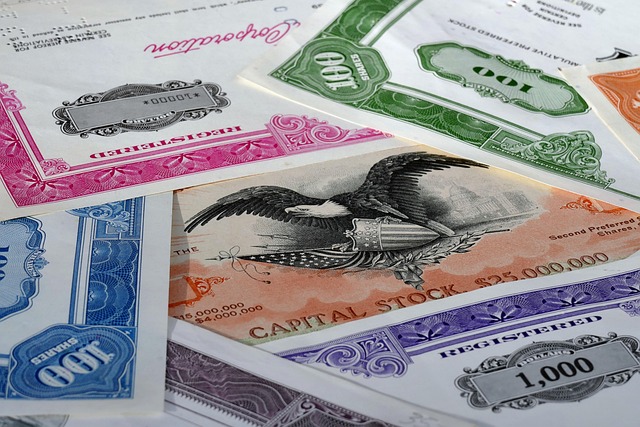Firing Jerome Powell will crash financial markets — Sen. Elizabeth Warren
US Senator Elizabeth Warren warned that if President Donald Trump eventually moves to fire Federal Reserve Chair Jerome Powell, it could undermine investor confidence in the integrity of US capital markets and trigger a financial crash.During an appearance on CNBC, the Massachusetts Senator said the President does not have the legal authority to remove Powell from his position. Moreover, removing Powell would weaken the financial infrastructure of the US, Warren added:”If Chairman Powell can be fired by the President of the United States, it will crash the markets. The infrastructure that keeps this stock market strong and, therefore, a big part of our economy strong, and a big part of the world economy strong, is the idea that the big pieces move independently of politics.””If interest rates in the United States are subject to a president who just wants to wave his magic wand, this doesn’t distinguish us from any other two-bit dictatorship,” Warren continued.Trump discusses US economic policies with reporters. Source: The White HousePresident Trump has repeatedly called for Powell’s termination, citing the chairman’s hesitancy to lower interest rates. Lower interest rates are usually considered a positive catalyst for risk-on asset prices, including cryptocurrencies, and could reverse the market downturn brought on by the trade war and current macroeconomic pressures.Related: Fed’s Powell reasserts support for stablecoin legislationTrump’s feud with the Federal Reserve chairmanTrump criticized Powell for not cutting interest rates and called for his termination again in an April 17 Truth Social post, which inflamed speculation that he would follow through on threats and find a way to remove the chairman.Senator Rick Scott echoed Trump’s calls to remove Powell. “It’s time to clean house of everyone working at the Federal Reserve who isn’t on board with helping the American people and fighting for their best interests,” Scott wrote in an opinion piece published on Fox News. Source: Donald TrumpThe Trump administration has repeatedly stated that lowering interest rates is a top priority. Market analyst and investor Anthony Pompliano recently speculated that Trump deliberately crashed financial markets to force lower interest rates.At the time, Pompliano cited a reduction in the yield of the 10-year US Treasury Bond to just 4%. The 10-year bond yield has climbed back up to 4.3% since then.Magazine: Meebits and CryptoPunks are like Hot Wheels for adults: New MeebCo owner Sergito
Aptos community proposal seeks to slash staking rewards by nearly 50%
An Aptos community member submitted a proposal on April 18 to slash staking rewards for the network’s native token, Aptos (APT), by nearly 50%The proposal, submitted by a community member called MoonSheisty, aims at reducing reward yields from 7% to 3.79% in a three-month period, aligning Aptos staking rewards with other layer-1 blockchains and encouraging capital efficiency.The proposal has sparked curiosity on X, but early comments on GitHub show some initial resistance.A community member going by ElagabalxNode noted that reducing the staking reward without “compensatory mechanisms like a robust delegation program” could push smaller validators out of the network, thus weakening the Aptos blockchain’s decentralization and long-term resistance.Related: Aptos to accelerate innovation with new tech, investment in IndiaThe proposal addresses the validators’ role in the network, stating that Aptos should consider a community validator program to give grants and stake to small validators contributing to the ecosystem.”Aptos was founded in 2021 by a group of former Meta engineers. According to DefiLlama, the Aptos blockchain has a total value locked of $974 million as of April 18, with nearly a $320 million coming from lending protocol Aries Markets.Aptos TVL and other metrics. Source: DefiLlamaWhile high staking rewards can incentivize users to lock up tokens on Aptos, MoonSheisty argues that they may also discourage participation in higher-risk, higher-reward opportunities within the ecosystem, such as restaking, DePIN infrastructure, MEV, and decentralized finance.Staking ‘real reward rates’ vary considerablyStaking rewards can vary significantly across blockchains. According to CoinLedger, real returns on the BNB Smart Chain are among the highest at 7.43%, while Cardano offers one of the lowest at just 0.55%.Staking offers multiple benefits: It incentivizes users to lock their tokens on-chain, supports validators and helps secure the network. Rewards work similarly to interest earned on a savings account — but instead of cash, stakers earn crypto, which can fluctuate in fiat value.Related: Coinbase’s Ethereum staking dominance risks overcentralization: ExecsFrom time to time, proposals emerge aiming to modify staking procedures. In June 2024, Polkadot introduced a proposal to reduce the time needed to unstake to just two days. In September, the Starknet community voted to pass a new staking mechanism, while Ethereum co-founder Vitalik Buterin proposed solutions to staking issues a few weeks later.While staking gives the community a true “stake” in the network, there are risks associated with it, including the consolidation of smaller pools into larger ones. This trend can undermine decentralization and weaken the blockchain’s overall resilience. Magazine: Ethereum restaking — Blockchain innovation or dangerous house of cards?
Canary Capital files for staked TRX ETF
United States asset manager Canary Capital has filed to list an exchange-traded fund (ETF) holding the Tron blockchain network’s native token, TRX (TRX), regulatory filings show. The fund intends to hold spot TRX and stake a portion of the tokens for added yield, the filing said. According to CoinMarketCap, the TRX token has a total market capitalization of more than $22 billion. Staking TRX generates an annualized yield of approximately 4.5%, data from Stakingrewards.com shows.The filing is the latest in an outpouring of submissions aimed at listing ETFs holding alternative cryptocurrencies, or “altcoins.” However, Canary’s proposed fund is relatively unique in requesting permission to stake its crypto holdings in its initial application. Other US ETFs, such as those holding the Ethereum network’s native token, Ether (ETH), have sought approval for staking only after successfully listing a fund holding the spot token. They are still waiting for a regulatory decision. Tron is a proof-of-stake blockchain network founded by Justin Sun, who also owns Rainberry (formerly Bittorrent), the developer of the BitTorrent protocol. In March 2023, the SEC sued Sun for allegedly fraudulently inflating the prices of the Tron token and BitTorrent’s BTT token. In February, the SEC and Sun asked the judge overseeing the lawsuit to pause the case to allow the parties to enter into settlement talks. Platforms for staking TRX. Source: Stakingrewards.comRelated: Canary Capital proposes first Sui ETF in US SEC filingAltcoin ETF seasonSince US President Donald Trump took office in January, US regulators have acknowledged dozens of filings for proposed crypto investment products. They include plans for ETFs holding native layer-1 tokens such as Solana (SOL) as well as memecoins such as Official Trump (TRUMP). Since 2024, Canary has filed for several proposed US crypto ETFs, including funds holding Litecoin (LTC), XRP (XRP), Hedera (HBAR), Axelar (AXL), Pengu (PENGU), and Sui (SUI).Some industry analysts doubt that ETFs holding non-core cryptocurrencies will be embraced by traditional investors.“Most crypto ETFs will fail to attract AUM and cost issuers money,” crypto researcher Alex Krüger said in a March post on the X platform.Magazine: SEC’s U-turn on crypto leaves key questions unanswered
Tokenized stocks could top $1T in market cap — Execs
Tokenized stocks are on track to exceed $1 trillion in market capitalization in the coming years as adoption accelerates, two industry executives said at the TokenizeThis conference in New York. The total addressable market for tokenized stocks — a type of tokenized real-world asset (RWA) — is difficult to project but is “definitely a bigger trillion-dollar market,” Arnab Naskar, STOKR’s CEO, said during an April 16 panel at the event.In 2025, demand for the instruments has “exploded” from institutions ranging from Web3 wallets to neobanks to traditional financial services firms, according to Anna Wroblewska, Dinari’s Chief Business Officer. “We’ve had an enormous influx of demand from a much broader scope of potential partners than you might even imagine […] it’s actually been really interesting,” Wroblewska said.Tokenized stocks are still a small portion of the total RWA market. Source: RWA.xyzRelated: Tokenization can transform US markets if Trump clears the waySmall but growing market shareAs of April 18, tokenized stocks comprise around $350 million in cumulative market capitalization, according to data from RWA.xyz. This represents only a sliver of the total RWA market, which is worth upward of $18 billion, the data shows. But this could change as tokenized stocks capture a growing share of the US equities market, Wroblewska said. The US stock market has an aggregate value of more than $50 trillion, according to Siblis Research. There is a “huge appetite for US public equities… even individual investors globally want exposure to US capital markets. Tokenization makes it fast and cheap,” Wroblewska said. She added that tokenized US Treasury Bills are already in high demand for similar reasons. They currently comprise nearly $6 billion in total market cap, RWA.xyz data shows. Meanwhile, Coinbase is considering making tokenized shares of its stock available on Base, its Ethereum layer-2 network.Collectively, tokenized RWAs represent a $30 trillion market opportunity globally, Colin Butler, Movement Labs’ global head of institutional capital, told Cointelegraph in an August interview.“Tokenization will become a mirror of the market. If the user experience is better, faster, and cheaper, people will default to tokenized assets,” Wroblewska said.Magazine: SEC’s U-turn on crypto leaves key questions unanswered
MoonPay CEO calls on Congress to keep state authority over stablecoins
Ivan Soto-Wright, CEO of cryptocurrency payment firm MoonPay, is calling on US lawmakers to leave a path open to state-level regulators when passing legislation on stablecoins.In an April 18 X post, Soto-Wright said he wanted Congress to “keep state-regulated issuers in the game” when it comes to stablecoin regulation, referencing efforts in the House of Representatives and Senate to create a federal regulatory framework. Lawmakers are considering whether to pass the Guiding and Establishing National Innovation for US Stablecoins, or GENIUS Act, in the Senate and the Stablecoin Transparency and Accountability for a Better Ledger Economy, or STABLE Act, in the House.“While the cryptocurrency industry has called for federal legislation for years, it has been these state regulators who have provided and continue to provide regulatory clarity and supervision to ensure consumer protection and enable growth in the sector,” said Soto-Wright. “As federal legislation now approaches the finish line, it is essential to preserve viable state pathways for PSIs [permitted stablecoin issuers] that place the state regulators who meet the standards set out in GENIUS and STABLE on equal footing with federal regulators.”April 17 letter from MoonPay CEO to congressional leadership. Source: Ivan Soto-WrightThe MoonPay CEO’s comment echoed those of the Conference of State Bank Supervisors (CSBS), which wrote to leadership on the House Financial Services Committee in an April 1 letter and recommended a similar state-level approach. Both the Senate Banking Committee and House Financial Services Committee voted to advance the bills in March and April, respectively, paving the way for a full floor vote.Related: Lawmaker alleges Trump wants to replace US dollar with his stablecoinThe STABLE Act, a companion bill modeled after the GENIUS Act, proposed regulating payment stablecoins by limiting them to “permitted payment stablecoin issuers,” allowing for “state qualified” ones. Soto-Wright said the GENIUS bill “stacks the deck” for permitted stablecoin issuers through federal regulators over state-level ones and the Federal Reserve to be the “sole federal regulator for all state PSIs.”Trump family-backed venture launched its own stablecoinIt’s unclear whether the bills have the necessary votes to pass both chambers before being signed into law by US President Donald Trump. The president and his family members have also backed the launch of their own stablecoin through World Liberty Financial, despite allegations of conflicts of interest and potential complications getting the bills through the House and Senate. World Liberty Financial, which launched in September 2024, has already received roughly $600 million — largely through token sales — from investors including Tron founder Justin Sun, market maker DWF Labs, venture capital firm Oddiyana Ventures, and investment platform Web3Port. According to the project, its USD1 stablecoin was not tradable as of March 24.Magazine: Trump’s crypto ventures raise conflict of interest, insider trading questions
Kraken adds forex perpetual futures contracts to its Pro platform
Cryptocurrency exchange Kraken introduced foreign exchange (forex) perpetual futures contracts to its Kraken Pro platform on April 18, giving traders further exposure to global currency markets.The first two perpetual forex futures available on the platform will be the euro-US dollar (EUR-USD) and the British pound-US dollar (GBP-USD) contracts, according to a company announcement.Both contracts feature 20x leverage and no expiry date, meaning they do not have to be rolled or settled by a deadline, unlike traditional futures contracts, which have an expiry date.Kraken’s move is the latest in a series of expansions from the company, as it seeks to blur the line between digital assets and traditional financial products — a trend reflected across the crypto industry.EUR-USD price action. Source: TradingViewRelated: Kraken secures restricted dealer registration in CanadaKraken sinks its tentacles into TradFi markets Kraken rolled out spot forex trading to clients worldwide except for the United States in March 2020.The launch gave crypto traders access to nine major currency pairs on the platform, including the euro, US dollar, Canadian dollar, Japanese yen, pound, and Swiss franc pairs.The crypto exchange in March signed an agreement to purchase NinjaTrader, a retail futures platform, for $1.5 billion.The deal is expected to close during the first half of 2025 and will position Kraken to offer crypto futures trading to US residents.Mastercard and Kraken partnered in April to release a crypto debit card that gives holders the ability to spend cryptocurrencies in standard retail transactions.On April 14, the exchange introduced stock and ETF trading in select US states, including New Jersey, Connecticut, Wyoming, Oklahoma, Idaho, Iowa, Rhode Island, Kentucky, Alabama and the District of Columbia.Kraken is also reportedly eyeing a capital raise of up to $1 billion as the company explores going public, according to a Bloomberg report published in March. If Kraken’s IPO plans materialize, the public offering will likely happen in the first quarter of 2026, Bloomberg reported.Magazine: Crypto ‘more taboo than OnlyFans,’ says Violetta Zironi, who sold song for 1 BTC
TRUMP tokenholders face 90% decline from peak as unlock begins
TRUMP tokenholders face steep losses as the first vesting unlock goes live on April 18, releasing 40 million tokens, worth roughly $309 million, into circulation at a 90% discount from its peak. The unlocked tokens account for 20% of the current circulating supply and could introduce fresh volatility as a previously illiquid portion of the supply hits the market. According to CoinGecko, the TRUMP token price has fluctuated between $7.46 and $7.83 in the past 24 hours. April 18 marks the first unlock event for the TRUMP token, with steady, smaller unlocks following from that date.TRUMP emission schedule. Source: GetTrumpMemesThe TRUMP token is down 89.5% from its all-time high of $73.43 recorded on Jan. 19, just two days after launching ahead of US President Donald Trump’s inauguration. The token’s value collapsed in the weeks following its debut, with over 800,000 wallets suffering a total of $2 billion in losses, according to estimates from blockchain analytics firm ChainalysisGains or losses are only realized upon sale, meaning holders won’t incur actual losses unless they choose to sell their tokens. According to the token’s website, the unlocked tokens will belong to the “Creators and CIC Digital LLC.” Related: Donald Trump’s memecoin generated $350M for creators: ReportWho owns the TRUMP token supply?According to the TRUMP token’s website, two organizations affiliated with Trump’s business umbrella own 80% of the token supply: CIC Digital LLC and Fight Fight Fight LLC. A report from MarketWatch notes that CIC Digital, an affiliate of The Trump Organization, was placed in a trust by the time of Trump’s 2024 financial disclosures to the US Federal Election Commission. CIC Digital had previously been linked to Trump’s non-fungible token collections.Related: What is TRUMP? Donald Trump’s billion-dollar memecoinFight Fight Fight LLC is another Trump-affiliated business. It is co-owned by CIC Digital and another company, Celebration Cards LLC, which was formed in Wyoming by Andrew Pierce. Fight Fight Fight LLC is synonymous with the Trump slogan “Fight Fight Fight,” which he shouted into a camera during an assassination attempt during a campaign rally.The April 18 unlock represents a “cliff” — a large, one-time release of tokens. While there are other cliff unlocks ahead, many tokens will be released at a steadier pace. For example, between April 19 and 21, around 493,000 tokens will unlock daily, according to DropsTab.Magazine: Trump’s crypto ventures raise conflict of interest, insider trading questions
Crypto Biz: Is the US Fed prepping the money printer?
The US Federal Reserve under Jerome Powell has developed a reputation for dragging its feet on implementing important policy changes. However, a top central banker has assured that the Fed is “absolutely” ready to do whatever it takes to avoid a financial crisis, whether triggered by the US-led trade war or other adverse developments.Although the long-awaited “Fed pivot” could still be months away, policymakers appear poised to gradually ease financial conditions, beginning last month when they reduced the redemption cap on Treasurys by 80%. Fed policy exerts a gravitational pull on global markets through US dollar liquidity, which has a direct impact on Bitcoin (BTC) and the broader cryptocurrency markets. In fact, the Fed’s impact on crypto has only grown since the COVID-19 pandemic. Since then, Bitcoin has been highly correlated with liquidity — a fact that was reinforced by a 2024 academic paper by Kingston University of London. This week’s Crypto Biz newsletter highlights remarks from a senior central bank official and covers major developments in the Ethereum exchange-traded fund (ETF) market and the Bitcoin mining sector.Fed’s Collins: Central bank will respond to liquidity constraints Boston Fed President Susan Collins said the central bank “would absolutely be prepared” to backstop markets if economic and financial conditions deteriorated rapidly. Collins was specifically referring to potential liquidity issues or other disruptions that could hinder normal market functioning.Currently, however, Collins noted that the central bank is “not seeing liquidity concerns.” Should that outlook shift, she emphasized that the Fed has “tools to address concerns about markets functioning or liquidity.”Collins is a voting member of this year’s Federal Open Market Committee (FOMC), which is responsible for setting interest rates. Investors expect the FOMC to refrain from cutting interest rates at its forthcoming meeting in May, based on Fed Fund Futures prices. However, the likelihood of a June rate cut has risen to 67.5%. Fed’s Collins pictured in an interview with Bloomberg. Source: Bloomberg TelevisionUS regulators approve options on spot ETH ETFsThe US Securities and Exchange Commission has green-lighted options trading for several spot Ether (ETH) exchange-traded funds, an important milestone in ETH’s quest to attract more institutional capital.According to an April 9 announcement, the approvals were granted to BlackRock’s iShares Ethereum Trust, Bitwise’s Ethereum ETF (ETHW), Fidelity’s Ethereum Fund (FETH), and Grayscale’s Ethereum Trust (ETHE) and Ethereum Mini Trust (ETH).Options give ETF investors the ability to hedge against a decline in assets, potentially making the funds more attractive to investors. The options trading approval is also seen as an important step in the SEC’s deliberations around staking services on ETH ETFs. According to Bloomberg analyst James Seyffart, the SEC may be on track to approve staking as early as May.Source: James SeyffartSolana staking ETFs come to CanadaAs the US SEC continues to deliberate about crypto staking services, Canadian regulators have approved another suite of crypto staking ETFs, this time for Solana (SOL).This week, asset managers 3iQ, Purpose, Evolve, and CI received approvals from the Ontario Securities Commission to offer staked Solana ETFs. The 3iQ fund selected blockchain infrastructure provider Figment as its primary staking provider. According to 3iQ’s website, its Solana Staking ETF will offer yields of between 6% and 8%.The Toronto-based 3iQ launched a spot Bitcoin (BTC) ETF in 2021, some three years before similar funds were approved in the United States.Bitdeer reportedly pivots to self-mining as trade war rattles supply chainBitcoin mining company Bitdeer is expanding its self-mining capacity and pouring more resources into the United States amid fears that the US-led trade war will rattle global supply chains and upend its hardware business. According to an April 15 report by Bloomberg, Bitdeer is prioritizing BTC mining due to declining demand for its mining rigs.As the broader industry grapples with the potential impact of tariffs, “Our plan going forward is to prioritize our own self-mining,” Bitdeer executive Jeff LaBerge told Bloomberg. On the topic of US expansion, LaBerge said, “This is something we’ve been planning for a long time.” US President Donald Trump’s sons, Eric and Don Jr, are going all-in on Bitcoin mining after backing a new venture with Hut 8. This follows a renewed commitment by the Trump administration to promote “made in America” Bitcoin.Crypto Biz is your weekly pulse on the business behind blockchain and crypto, delivered directly to your inbox every Thursday.








